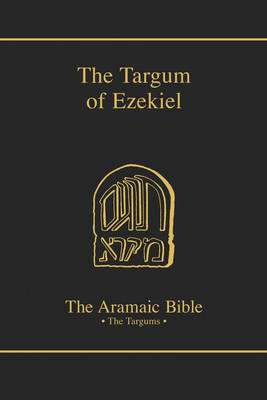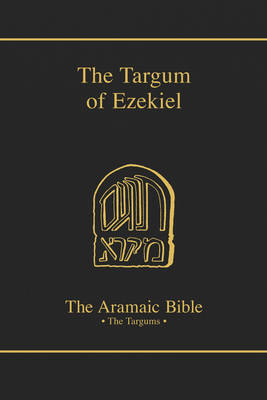
- Afhalen na 1 uur in een winkel met voorraad
- Gratis thuislevering in België vanaf € 30
- Ruim aanbod met 7 miljoen producten
- Afhalen na 1 uur in een winkel met voorraad
- Gratis thuislevering in België vanaf € 30
- Ruim aanbod met 7 miljoen producten
Omschrijving
The Targum of Ezekiel, when critically analyzed, offers a vivid insight into an area of Jewish theological speculation stretching far back into the history of Jewish religious thought. The complexity of the document, however, compounded by a difficult Masoretic text, abundant grammatical and syntactical problems, and an infusion of strange language and linguistic peculiarities, challenges the most incisive biblical analysts. Like the Book of Ezekiel, it poses literary, exegetical, and theological problems.
The Targum belongs to the same genre as the other official Targumim, designated in Jewish Tradition as Onqelos on the Pentateuch and Jonathan on the Prophets. Its language, basically Palestinian Aramaic, was revised and edited in Babylon; its vocabulary, idiom, grammatical form, and rendering of the Hebrew text are essentially the same as we find in the official Targumim on the other books. But beyond this, the Targum of Ezekiel has some peculiarities distinctly its own.
Specificaties
Betrokkenen
- Vertaler(s):
- Uitgeverij:
Inhoud
- Aantal bladzijden:
- 160
- Taal:
- Engels
- Reeks:
- Reeksnummer:
- nr. 13
Eigenschappen
- Productcode (EAN):
- 9780814654828
- Verschijningsdatum:
- 1/01/1987
- Uitvoering:
- Hardcover
- Formaat:
- Genaaid
- Afmetingen:
- 180 mm x 263 mm
- Gewicht:
- 566 g

Alleen bij Standaard Boekhandel
Beoordelingen
We publiceren alleen reviews die voldoen aan de voorwaarden voor reviews. Bekijk onze voorwaarden voor reviews.








